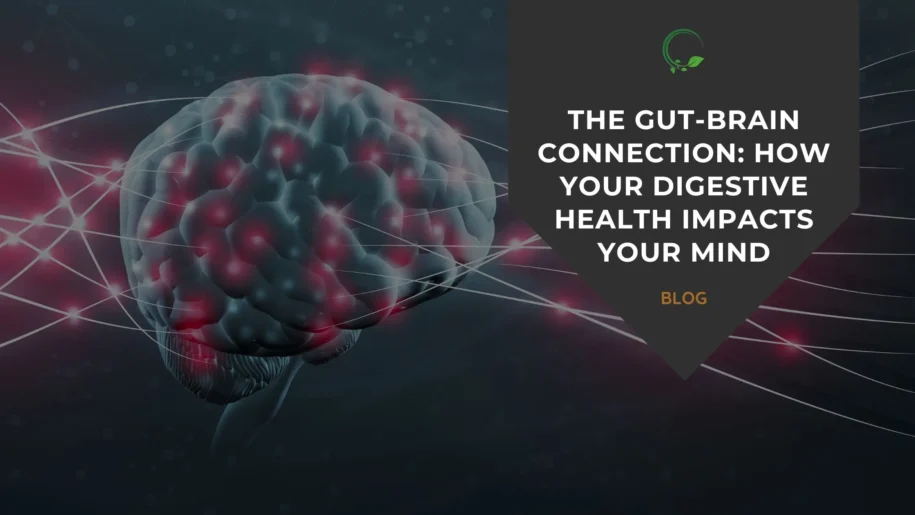Did you know your gut and brain are in constant communication? This fascinating relationship, known as the gut-brain connection, is a two-way communication system linking the emotional and cognitive centers of the brain with the digestive system. Understanding this connection can help us improve both mental and physical health.
What Is the Gut-Brain Connection?
The gut-brain connection refers to the bidirectional communication between the gastrointestinal (GI) tract and the central nervous system (CNS). This dialogue occurs through:
- The Vagus Nerve: A major highway of communication, carrying signals from the gut to the brain and vice versa.
- Gut Microbiota: The trillions of microbes in your digestive system play a key role in influencing brain function, mood, and even behavior.
- Chemical Messengers: Neurotransmitters like serotonin and dopamine, many of which are produced in the gut, directly influence mood and emotions.
How the Gut Affects the Brain
Mental Health
- A large portion of serotonin, the “feel-good” hormone, is produced in the gut. An imbalanced gut microbiome can reduce serotonin levels, contributing to anxiety, depression, and mood swings.
Stress Response
- Stress can disrupt gut function, leading to issues like bloating, cramps, or irregular bowel movements. Conversely, a disrupted gut can increase feelings of stress, creating a feedback loop.
Cognitive Function
- Studies suggest that the gut microbiota may influence memory, focus, and overall cognitive performance. A balanced microbiome may support brain health and reduce risks of neurological disorders.
How the Brain Affects the Gut
- Digestive Health
- Stress and anxiety can slow digestion, increase acid production, or even trigger conditions like irritable bowel syndrome (IBS).
- Eating Habits
- Emotional states can drive cravings or reduce appetite, influencing gut health through dietary choices.
Supporting a Healthy Gut-Brain Connection
1. Eat a Gut-Healthy Diet
- Include high-fiber foods, fermented products like yogurt or kimchi, and prebiotic-rich ingredients such as garlic and onions. These nourish the beneficial bacteria in your gut, which positively impacts brain health.
2. Manage Stress
- Techniques like mindfulness, yoga, deep breathing, and meditation can calm the nervous system and improve digestion.
3. Stay Active
- Exercise promotes healthy blood flow to both the brain and gut, reduces stress, and supports a balanced microbiome.
4. Prioritize Sleep
- Poor sleep affects both gut health and brain function. Aim for 7–9 hours of quality sleep each night.
5. Consider Probiotics and Prebiotics
- Probiotics introduce beneficial bacteria to your gut, while prebiotics feed the existing ones. Consult a healthcare provider for personalized recommendations.
6. Seek Professional Guidance
- If you suspect your mental or digestive health is affecting the other, work with a dietitian or mental health professional to develop a tailored plan.
The Bottom Line
The gut-brain connection reveals the incredible interplay between what we eat, how we feel, and how our bodies function. By nurturing your gut health, you can support your mental well-being, and vice versa. Taking small, consistent steps toward a healthier lifestyle can strengthen this powerful connection and benefit you in countless ways.
Invest in your gut; your brain will thank you!

